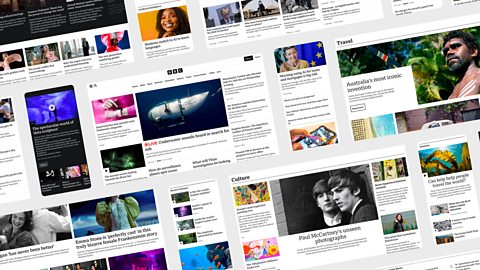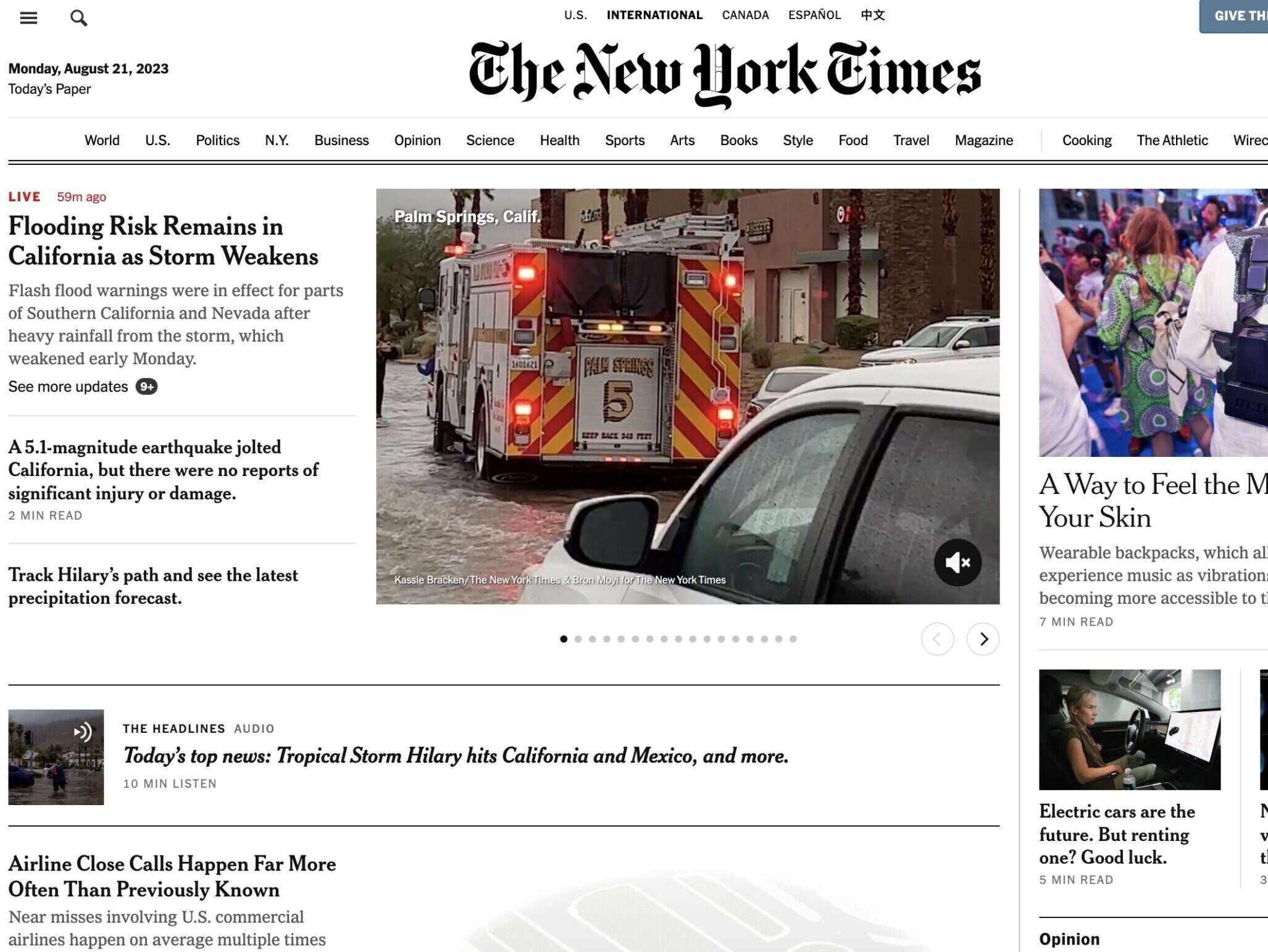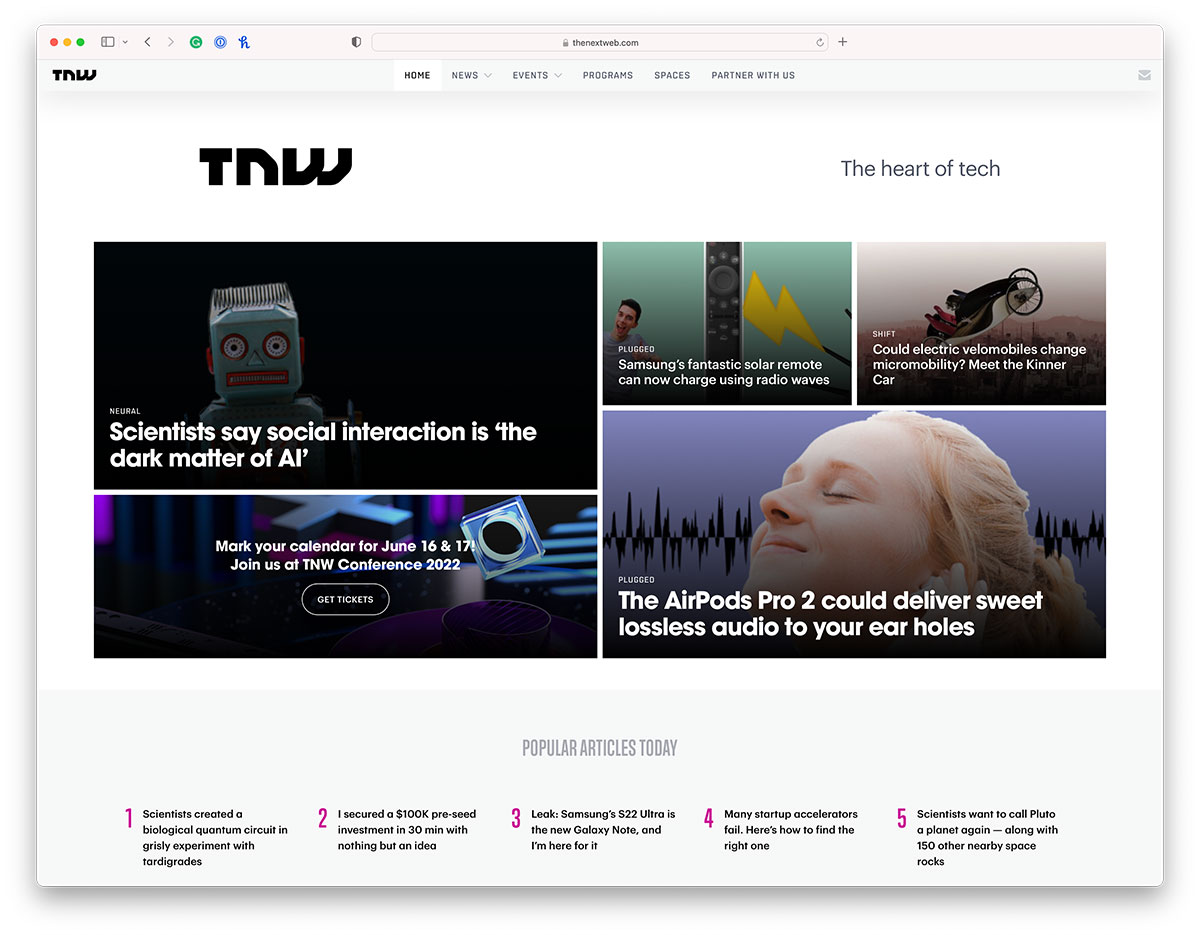See This Report on News Websites
See This Report on News Websites
Blog Article
The Facts About News Websites Uncovered
Table of ContentsNews Websites Things To Know Before You BuyNot known Incorrect Statements About News Websites 6 Simple Techniques For News WebsitesAn Unbiased View of News WebsitesRumored Buzz on News Websites
It was down in the UK and Brazil but up a few other countries, such as Greece, Bulgaria, and Poland (News Websites). This year, for the very first time, we asked regarding the various means that people stay clear of the news and discovered that around half of avoiders (53%) were trying to do so in a broad-brush or periodic way for instance, by shutting off the radio when the information came on, or by scrolling past the news in social networksYou stated that you try to actively avoid information.

I'm probably choosing to learn more light-hearted stories than I made use of to at the moment. M, 51, UK Turning my back on news is the only method I feel I can deal sometimes. I have to consciously make the effort to turn away for my own psychological wellness.
News Websites Things To Know Before You Get This
Discerning evasion of Ukraine information was highest possible in most of the countries closest to the dispute, strengthening findings from our extra study in 2015, soon after the war had begun. Our information might not suggest an absence of passion in Ukraine from nearby nations however instead a need to handle time or protect mental wellness from the very real scaries of war.
Comparing Finland with a politically polarised nation such as the USA (see following chart) that is less affected by the battle, we find a very different pattern of topic avoidance. In the United States, we discover that consumers are more probable to avoid topics such as nationwide politics and social justice, where discussions over issues such as sex, sexuality, and race have actually come to be highly politicised.
American politics are quite toxic these days. I discover sometimes that I have to separate from stories that simply make me mad. F, 61, USA For some individuals, bitter and disruptive political arguments are a reason to shut off news completely, yet for some political upholders, evasion is commonly regarding blocking out point of views you don't intend to listen to.

See This Report on News Websites
Some are looking to make information extra accessible for hard-to-reach groups, widening the news schedule, commissioning more inspiring or positive information, or welcoming constructive or options journalism that offer people a sense of hope or personal agency. In our study this year, we asked participants concerning their interest in these various techniques.
This discusses why tales like Ukraine or nationwide politics perform well with news regulars yet can at the same time turn much less interested users away (News Websites). Careful avoiders are much less interested in all sorts of information my response than non-avoiders yet in family member terms they do seem to be a lot more thinking about positive or solutions-based news

The 5-Minute Rule for News Websites
2023). This may hold true in the minute, but gradually it appears to be leaving many individuals vacant and much less completely satisfied, which may be undermining our connection with and count on the information. Throughout markets, general rely on why not try here news (40%) and count on the sources individuals use themselves (46%) are down by a better 2 percent factors this year.
Certainly, with the rear-view mirror, the COVID-19 trust fund bump is clearly noticeable in the adhering to graph, though the instructions of traveling later on has actually been blended. In some cases (e.g. Finland), the depend on boost has actually been maintained, while in others the upturn looks more like a spot in a tale of ongoing long-term decline.
A few of the highest reported degrees of media criticism are discovered in nations with greatest degrees of distrust, such as Greece, the Philippines, the USA, France, and the UK. The lowest degrees of media criticism frequent those with greater levels of count on, such as Finland, Norway, Denmark, and Japan.
News Websites - An Overview
This year we asked respondents about their choices for text, audio and video clip when eating information online. Generally, we locate that the bulk still favor to read the information (57%), instead than watch (30%) or pay attention to it (13%), but younger people (under-35s) are more probable to pay attention (17%) than older teams.
Behind the averages we discover substantial and unusual country differences. In markets with a solid analysis practice, such as Finland and the UK, around eight in 10 still favor to check out on the learn this here now internet information, yet in India and Thailand, around 4 in ten (40%) claim they prefer to see information online, and in the Philippines that proportion is over fifty percent (52%).
Report this page